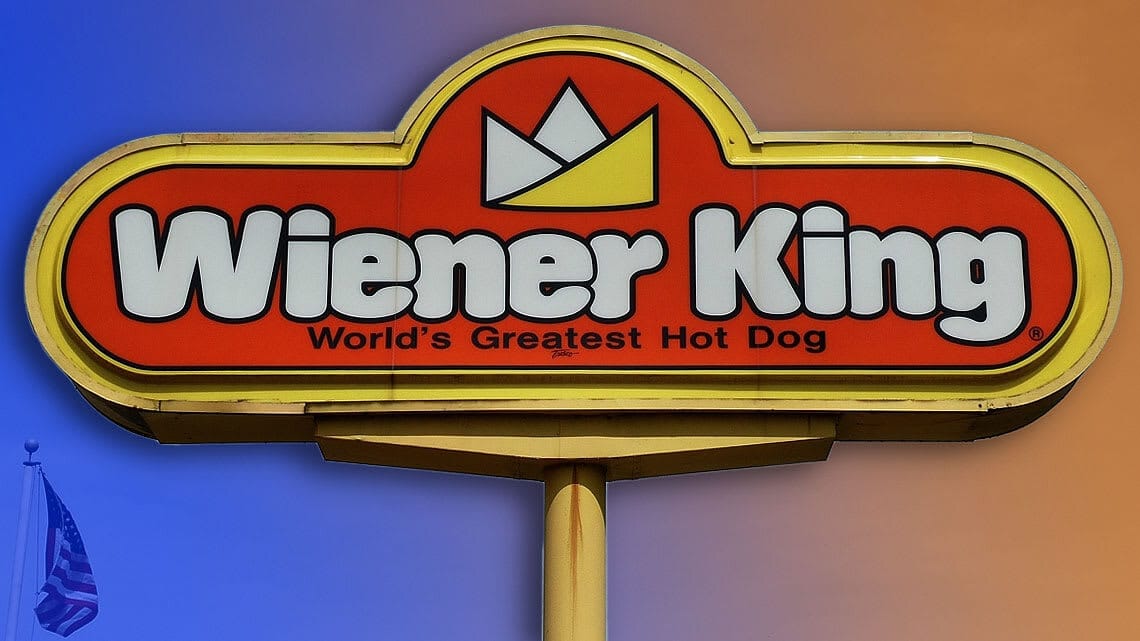
I didn’t choose this Wiener King tweet. This Wiener King tweet chose me.
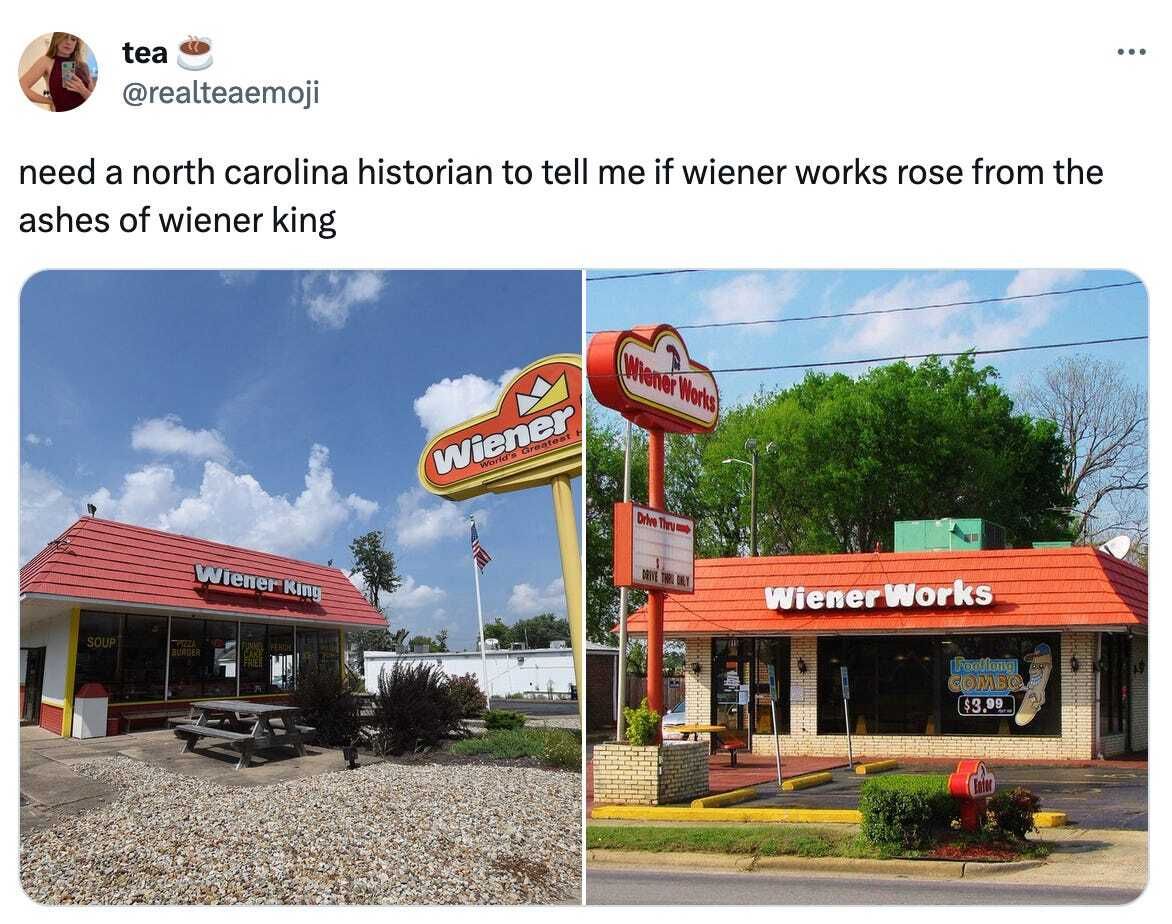
This particular request was aimed at nobody in particular, but it floated into my feed this morning. I felt obligated to answer it, partly because of all of the North Carolina-based regional fast food chains that I have come to know and love (Cook Out! Bojangles! Biscuitville! Even you, Smithfield’s!), I had not heard of either one of these. It turns out that the company had a spectacular rise from humble beginnings in Charlotte, then fell just as quickly as it rose. The Wiener King, like Icarus, flew too close to the sun. But! I discovered there is one man out there who is trying to keep the dream of the Wiener King alive, even if it costs him everything.
The Original Wiener King
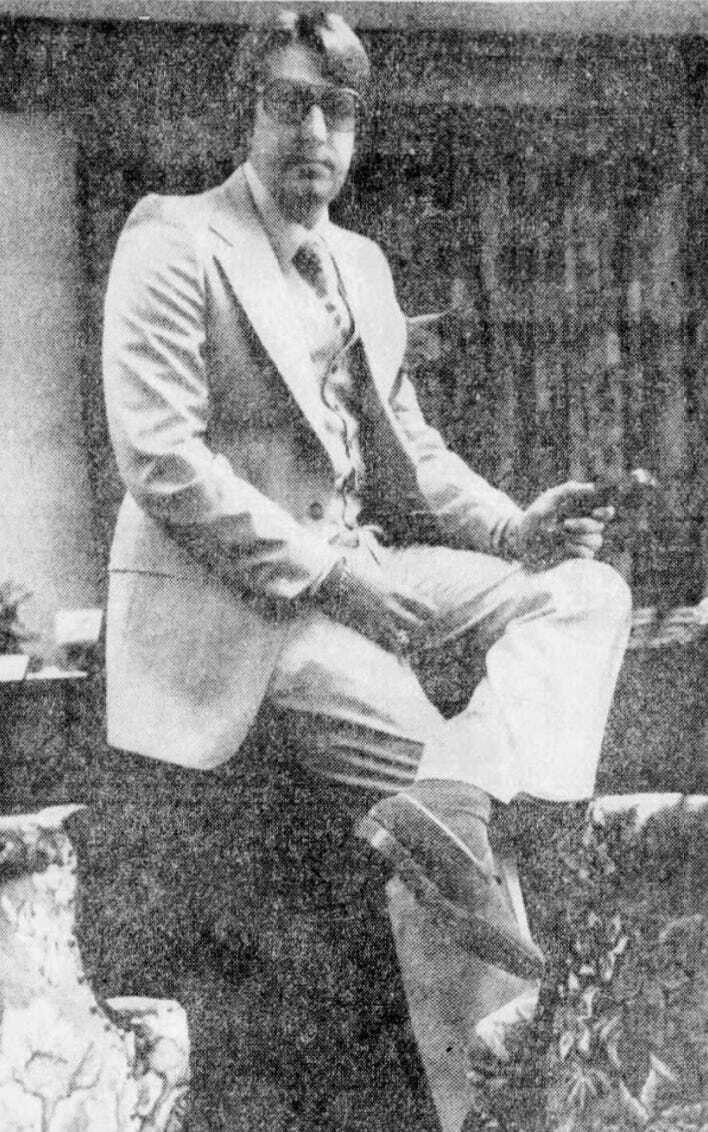
Wiener King was first formed in 1970 by a 29-year-old former master plumber named Ronald Howard. He’d grown up in Birmingham, Alabama, plumbing during the day and working in restaurants at night. In 1968, he moved to Charlotte to take over a local franchise of Pasquales Pizza, and quickly turned that one store into 18. He wanted to own something that was his, though, and that’s when he got his big idea. “I think before the hamburger came along, the hot dog was the most popular product the American public ever ate,” Howard told The Charlotte News in 1972. “But then, nobody ever merchandised them — they didn’t make them the way the customer wants them.” Basically, Howard saw that Charlotte had no fast food-style hot dog joints. So, he founded Wiener King Corp. in 1970, and opened his first Wiener King restaurant on Freedom Drive. Two years later, Howard expanded to 14 locations and was doing $1 million a year in sales. He sold his Pasquales stores to focus on Wiener King full time. “We’d like to have a company as large as McDonald’s one day,” he said.
Some of its early marketing was controversial enough to get a lot of people talking. In 1974, at least one TV station refused to air a Wiener King commercial starring then-local Charlotte DJ Jay Thomas wearing only a towel and holding a hot dog under his arm (it was a spoof of the Joe Namath Brut ad, if you’re old enough to remember that). And in 1975, the company got some attention for blowing up a big hot air balloon that said “Wiener King” on the side. It floated 50 feet above President Gerald Ford’s visit to Freedom Park before angry local officials made the company take it down. The stunt worked. It got a write-up in the newspaper, which then published a follow-up after Charlotteans started asking how they could get their own personal Wiener King hot air balloons.
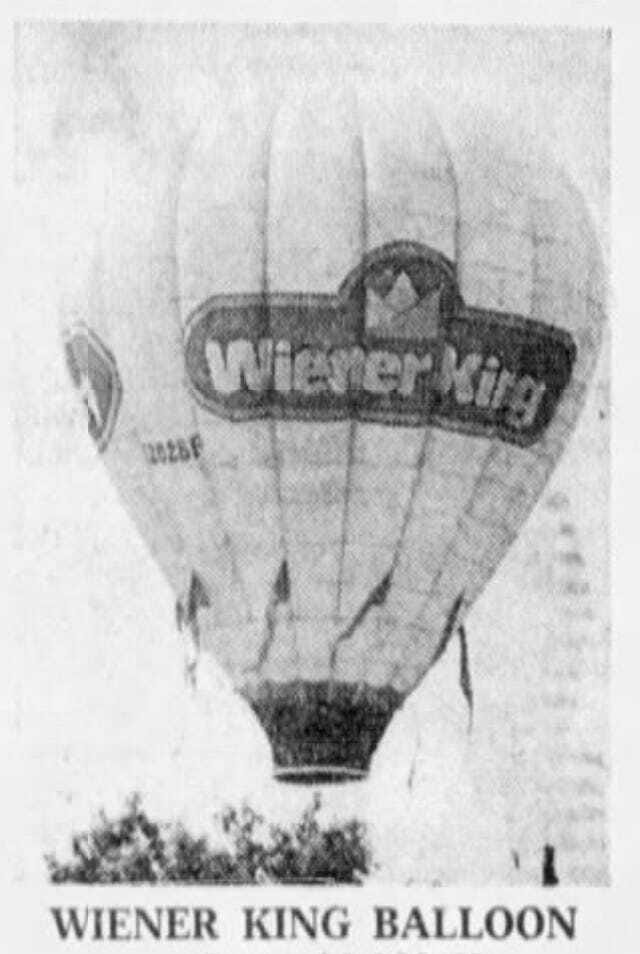
Meanwhile, the company kept growing, faster than McDonald’s did in its early days. By 1977, Wiener King had 100 stores from New York to Florida, and as far west as Colorado. Howard was still the owner and owned all of the company’s stock. He lived large. In addition to his restaurants, Howard owned some apartment complexes and had plans to start up a race horse breeding operation on Lake Norman. Up until that point, it seemed as if his biggest setback was having a $12,000 ring stolen out of his car while he worked out at the YMCA on E. Morehead Street. He also developed a very ‘70s sense of style. I mean, how do you think the Wiener King should look? Exactly like this:
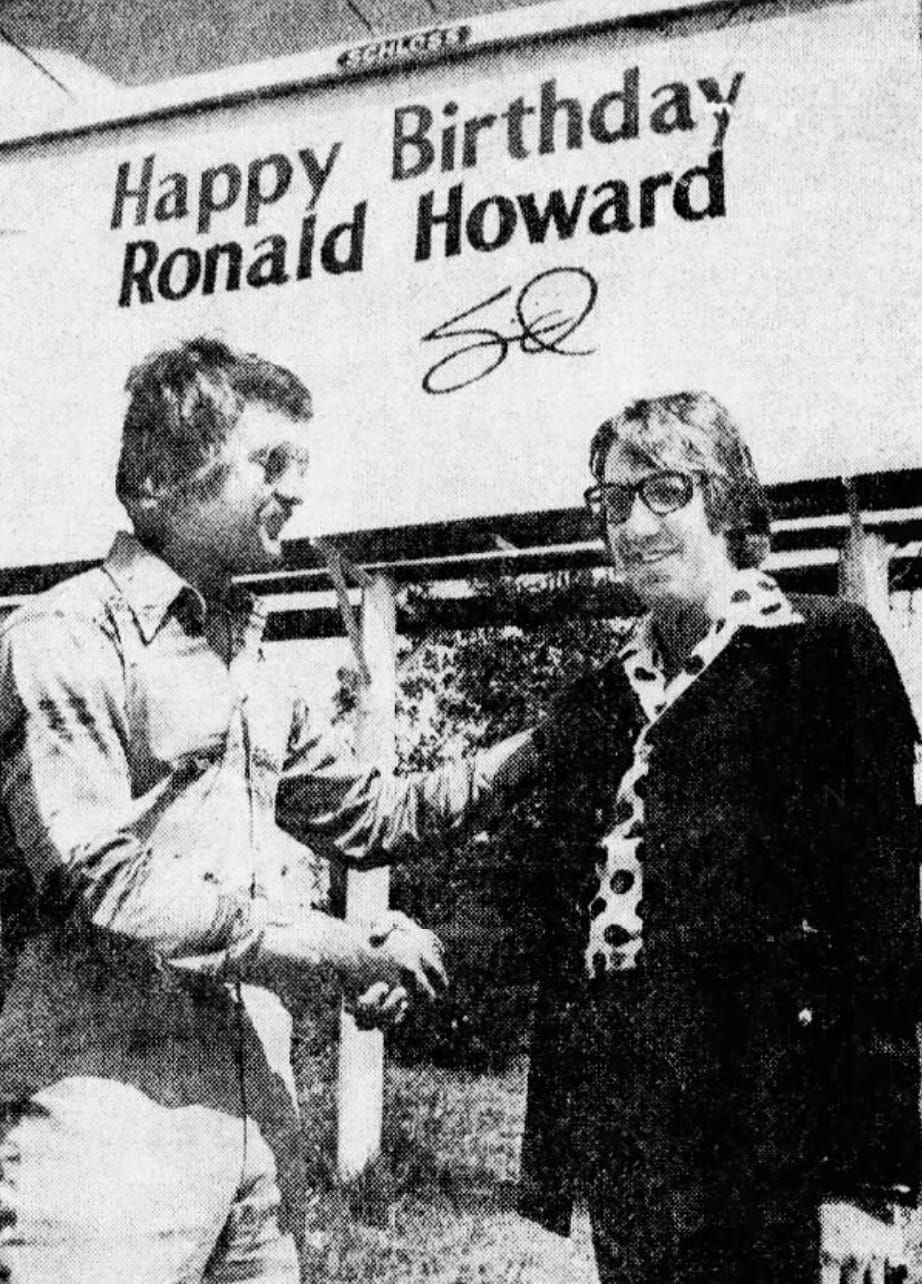
Howard kept on getting fawning profiles in the local Charlotte newspapers, except for a 1977 story where a Wiener King customer complained that the restaurant’s “Foot Long” hot dogs were only about 8 1/2 to 10 inches in length. “The wording, Foot Long, is nomenclature and not descriptive,” Howard wrote to the customer. Okay then! The company’s lawyers later agreed to lengthen its Foot Long hot dogs to 12 inches. Still, things seemed to be humming along. The company had 174 locations in 25 states, and built a new training center in Charlotte. Howard set his sites on having 1,000 Wiener Kings open in three years, and 2,500 by 1985. He said he’d like to take the company public.
The next year, in November 1978, Wiener King filed for Chapter 11 bankruptcy. It said it was having severe cash flow problems and was unable to pay its debts. The company had expanded at a breakneck pace, and the money wasn’t coming in quickly enough to pay for all of that growth. Plus, it was having a hard time collecting fees from franchise owners. A reporter asked Howard after a hearing if he still thought he was a business “wonder kid,” as he’d once been described. “Who says it’s still not true?” he replied. He said he planned on paying everyone back.
That didn’t happen. By 1979, Wiener King’s headquarters on E. Morehead Street went up for sale. The company sold some of Howard’s stock to raise money. In 1981, some Wiener Kings started selling draft beer, which was, uh, news to the company’s president! “I don’t know anything about it,” Howard told the Charlotte News.
In 1982, the bankruptcy judge in charge of Wiener King’s case said Howard had made false statements, and removed him as president of the company. The FBI investigated accusations that his company hadn’t paid its taxes and was using that money to stay afloat. A consultant recommended that the company be sold, and that “Mr. Howard would be a poor choice for maintaining Wiener King.” The creditors hoped that the company wouldn’t be liquidated.
In 1983, a couple from Pennsylvania bought the whole company at auction for $100,000, and moved the headquarters to their hometown of Easton. They hoped to resurrect the Wiener King brand, but it basically faded away in the years that followed. Several Wiener King franchises in Charlotte stayed open, but under different names. The company was a tiny shell of its former self by that point, with only 40 stores left. “They got carried away by their own success,” Wiener King’s receiver said after the saga ended. Some $2.5 million of the company’s debts were never repaid.
Howard himself said that he wanted to move back to Birmingham to open a lounge, which he did. He stayed in Alabama, golfing and rooting on the Crimson Tide until his death in 2016 at age 74. His obituary called him a successful local businessman, but didn’t mention anything about hot dogs.
He wasn’t the only Wiener King. His son Michael, who died in 2021, was given the nickname “Wiener” and “Wiener King” during his days at Mooresville High School.
So What Happened To The Wiener Kings?
For one thing, there was more than one Wiener King. Another fast-food chain called Wiener King formed in New Jersey in 1962, eight years before the North Carolina Wiener King was created. The two companies apparently didn’t know about each other for years. Once they did, they got into a trademark fight. (The resolution kept the North Carolina-based Wiener King out of New Jersey while it continued to expand elsewhere around the country.)
Several Wiener Kings franchises changed their names when they decided that they weren’t happy with their corporate parent and struck out on their own. In 1978, for example, four Wiener Kings in Greensboro became known as “Sally’s.” In 1987, several Wiener Kings banded together to form their own company, called Wiener Works, and split off. That, apparently, is what happened to several Wiener Kings in the Fayetteville area that opened in 1973. Four of them are still in business today, and they’re legendary in the Fayetteville for their shoestring fries.
So yes, to answer the original tweet, Wiener Works rose from the ashes of Wiener King.
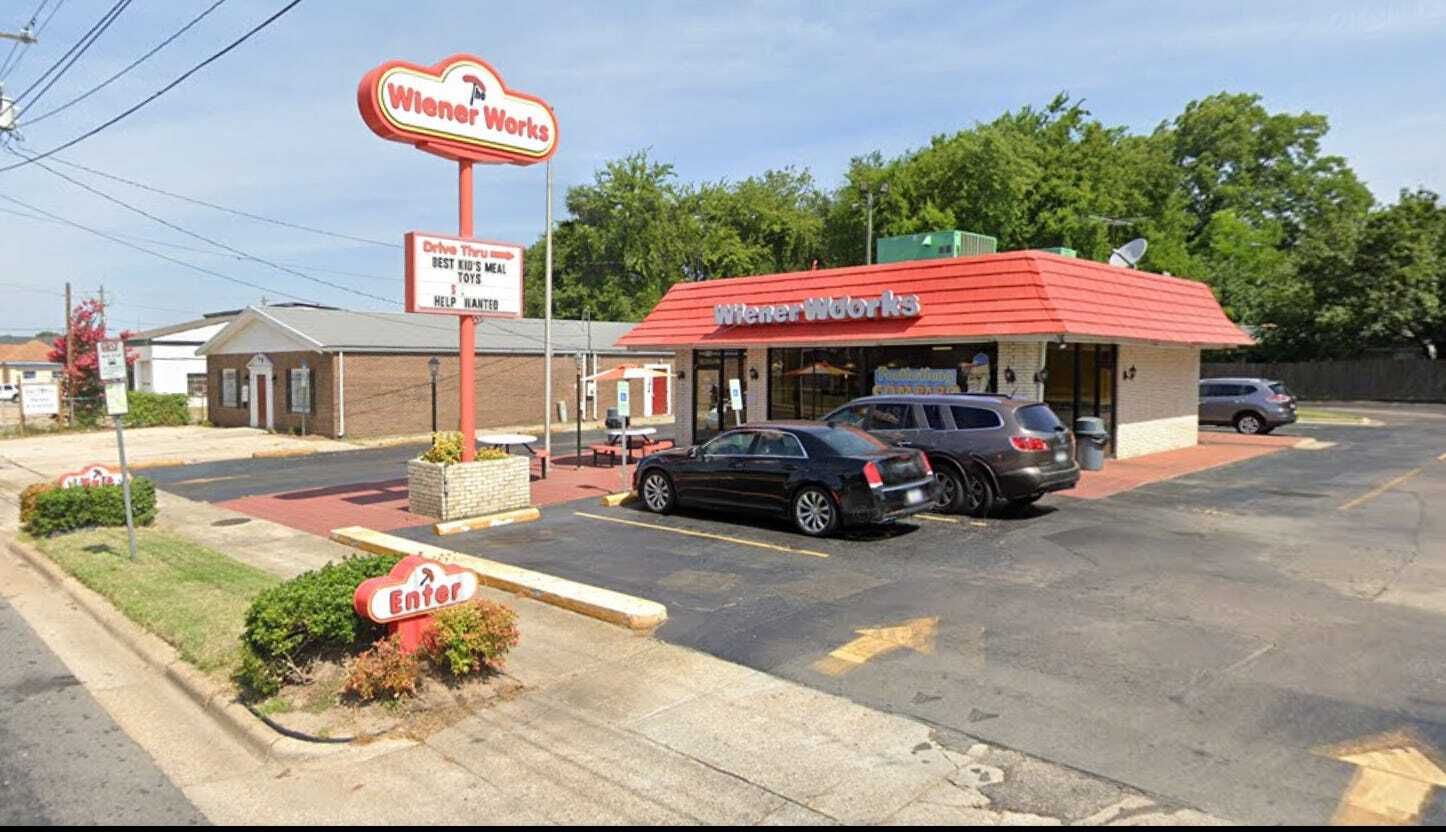
However! There is still one single Wiener King that remains in operation. It’s located in Mansfield, Ohio, and the owner there has turned his restaurant into a bit of a Wiener King museum of sorts, complete with old ads and signs. That owner, Jimmy Smarjeff, took the place over from his father Christ (the “t” is silent). When Wiener King Corp. was collapsing, Christ refused to change anything, even after the corporation vanished and its stores started to call themselves something else. It inexplicably hung on for so long that the rumor around Mansfield was that it was a front for the mafia. (It’s not).
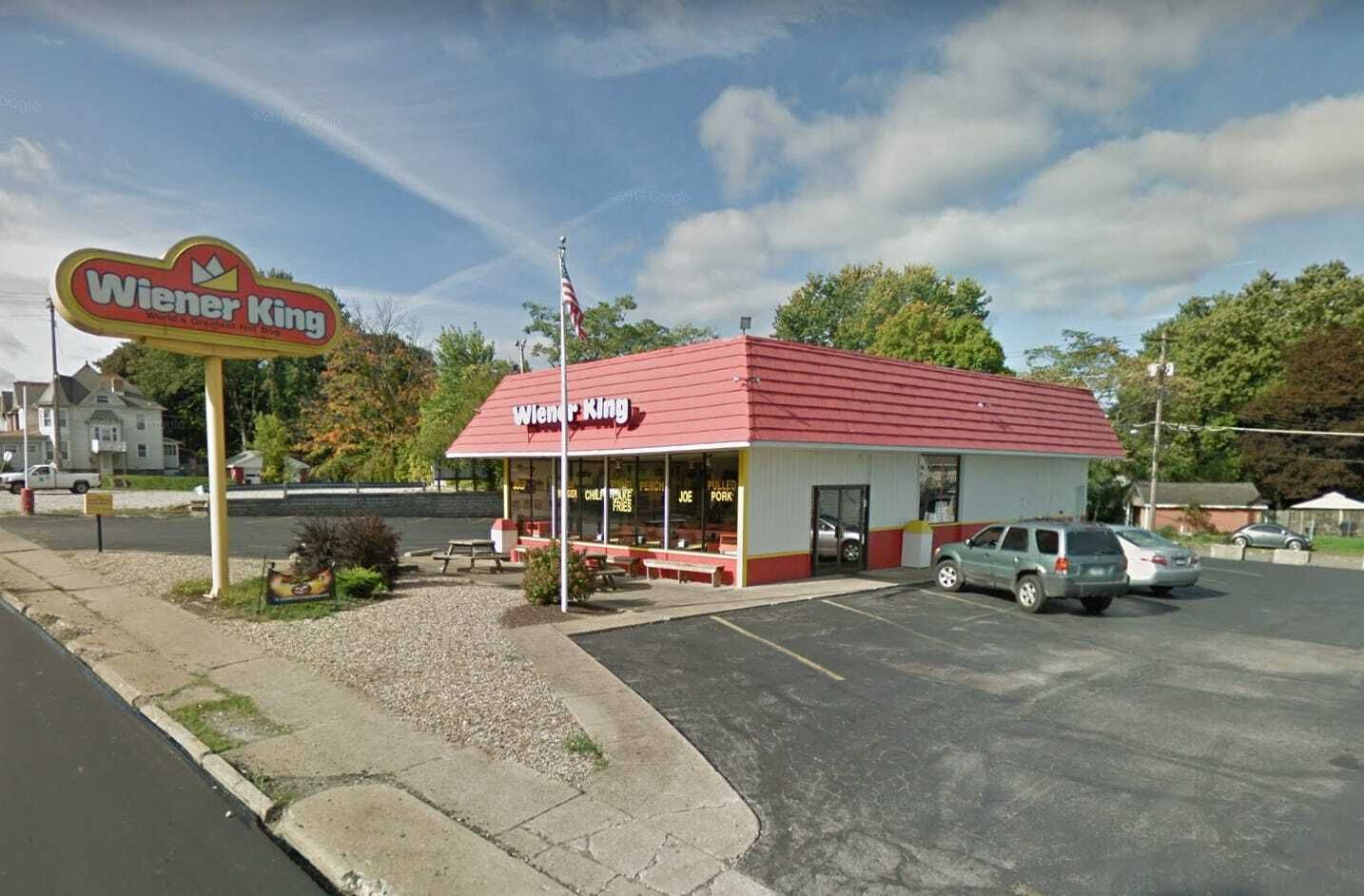
It’s not been an easy go. In 2016, Smarjeff had heart surgery, so friends stepped in to run the restaurant, and also helped him pull off an overdue renovation. But in 2018, with nursing home bills for his father piling up, Jimmy Smarjeff asked for help to avoid having to sell his restaurant. According to Richland Source:
“That dedication has left me in a precarious situation. The only qualifying years of Social Security earnings came when I briefly worked out of state in the '80s, leaving me with no income should I retire,” Smarjeff said. “In other words, Wiener King is my lifeblood, and only source of income.”
He feels that he’s in no position to sell the restaurant and hopes the community will rally behind the establishment to help.
Today, the restaurant remains in business. Barely. Wiener King’s Facebook page has been detailing Smarjeff’s continuing health issues, along with his hard time in finding staff. The restaurant’s been closed off and on, and has only been able to open lately for Thursday bike nights. In a post this morning, Smarjeff says the restaurant should be back open Monday through Friday of next week. Somehow, 53 years after the first Wiener King opened in Charlotte, the last one is still managing to hold on.
